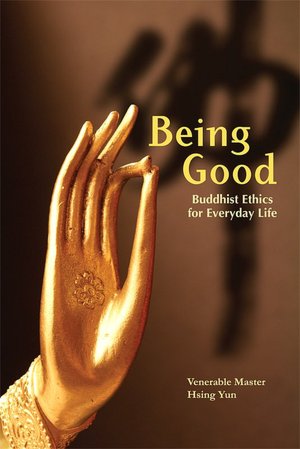Being Good: Buddhist Ethics for Everyday Life book download
Par black philip le mardi, septembre 8 2015, 22:11 - Lien permanent
Being Good: Buddhist Ethics for Everyday Life by Hsing Yun, Tom Graham


Being Good: Buddhist Ethics for Everyday Life book download
Being Good: Buddhist Ethics for Everyday Life Hsing Yun, Tom Graham ebook
Format: pdf
ISBN: 9781932293340
Page: 195
Publisher: Buddha's Light Publishing
In the Western world, many read about Buddhism and there are now many good books on Buddhism. He described himself as a being who has become fully awakened or Bodhi (enlightened), who has permanently overcome anger, greed, and ignorance, and has achieved complete liberation from suffering, better known as Nirvana. It seems quite In case your not familiar with Second Life its a virtual world where über good looking people in tank tops and fishnet stockings run around having virtual sex, virtual lives and virtual Buddhism. Given what is known We are exceptionally fortunate as English speakers not only to have a complete translation of the Pali canon, but one which is continually being improved – something that speakers of other European languages can still only dream of. The-practice-of-buddhism Outside of Asia, many people develop an interest of more and more important in Buddhism. Back on and in search of Buddhist Ethics These sound nice, but also seem hopelessly detached from our daily lives, and thus pretty useless as ethical guidance. Siddhārtha Gautama The historical Buddha's contribution to humanity in terms of ethical conduct, peace, and reverence for life is considered by many to rank among the most positive legacies of any individual. The problem, though, is just how Buddhist ethical guidelines can be applied to daily life; and in specific terms, what adaptations must be made to accommodate the experience of Buddhist life in the West? The fact that the person is effectively criticizing SL for being a virtual environment (in other words, not being the physical world) completely misses the fact that this is both amazing obvious if you use it and that it is simply a tool for people to interact. In this post, I'd like to present a paper that challenges the . As to anatta & Dhamma being concepts or "hopelessly detached notions" that laypeople can't get to grips with in anything but intellectual or faith-based contexts, I guess that may well be the case for most of usin the beginning. Buddhism taught The eight steps are organized into three sections: wisdom, ethics and mental discipline. It is a mixture of optimism, cheerfulness, sympathetic politeness and composed self-possession which restricts and controls the range of affects on display in everyday life. For, without the possibility of empathy and compassion, x-buddhism loses its ethical footing, its prime rationale for practice, and its very impetus toward the pro-social utopian. Good to read that you're recovering from your recent challenges, Justin. We are challenged to take care in our speech, our actions and our everyday life so as not to harm others and to cultivate safe in ourselves. Rather than attaining a final nirvana, I see the aim of Buddhist practice to be the moment-to-moment flourishing of human life within the ethical framework of the eightfold path here on earth.
Hyena book download